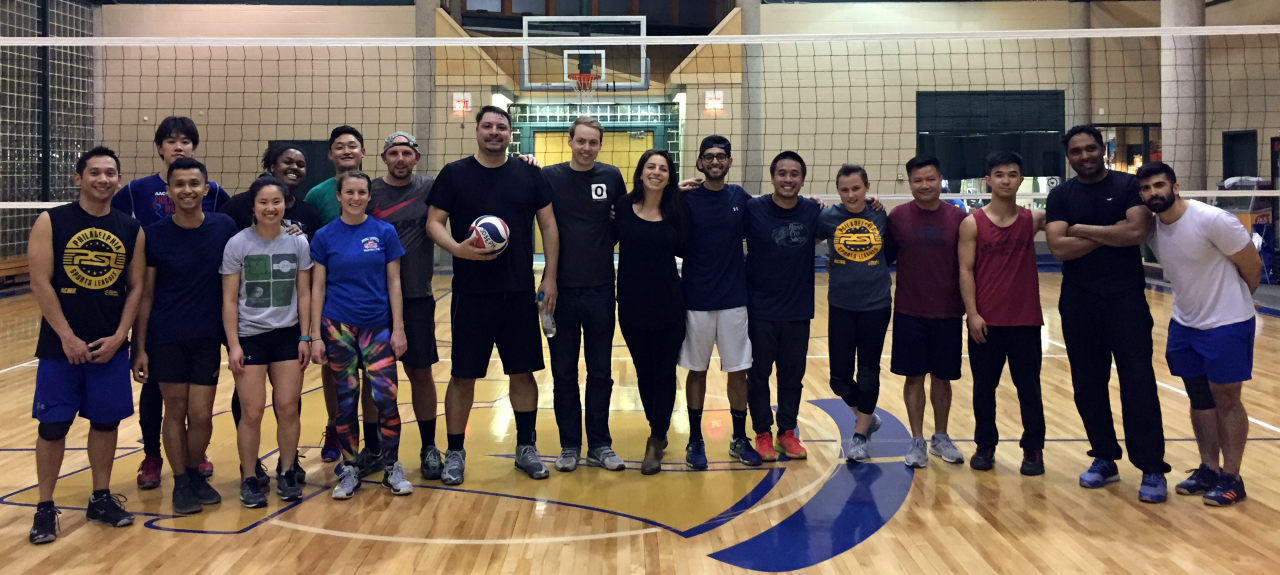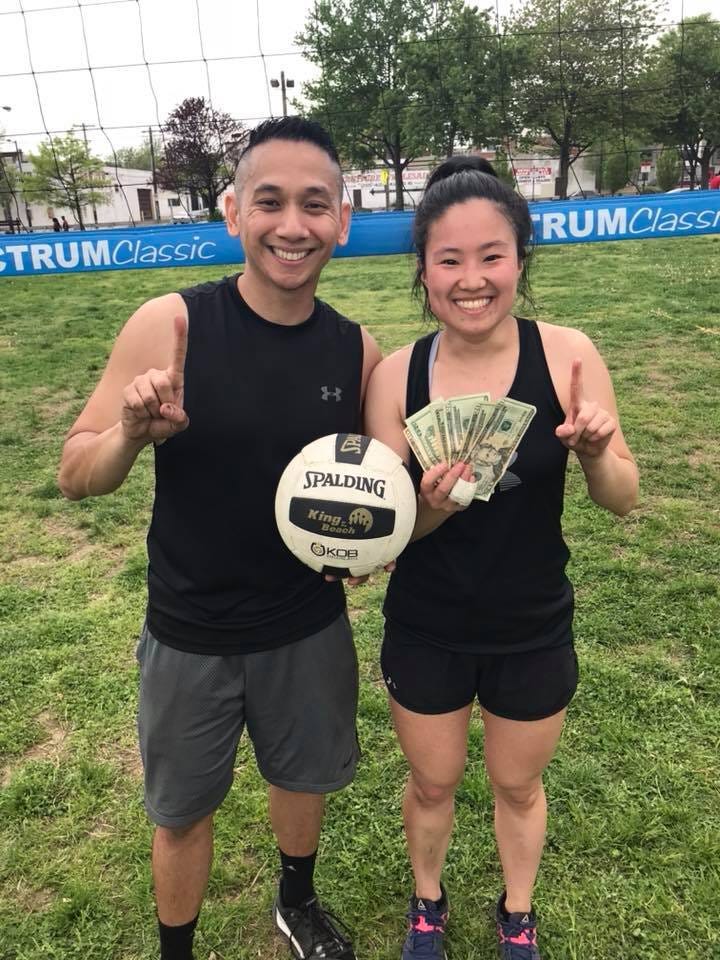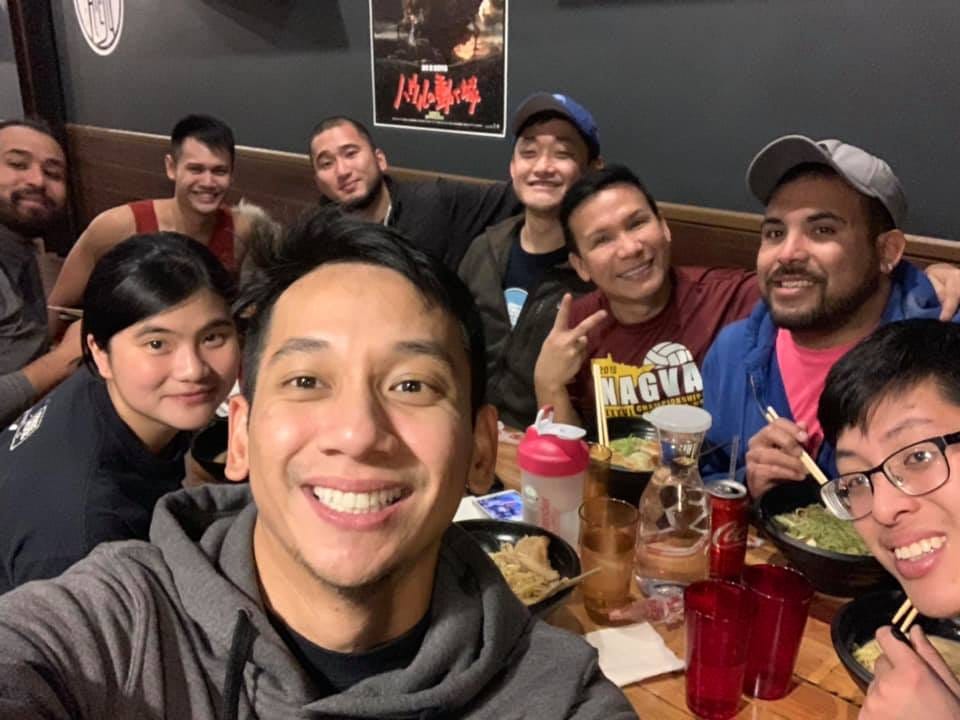Impactful stories and tips from one of the fastest growing open play volleyball groups in North America

“At some point, I had so many events, I couldn’t be in two places at once. I needed people to give me a hand.” — Dan Elliott, Philadelphia Volleyball
Introduction
Growing your sports group is a very exciting journey, and when things really start taking off, there are common challenges that sports organizers face. We at OpenSports are thrilled to present stories from some of the best organizers of sports groups worldwide, with the goal of providing valuable, immediately applicable tips for organizers who are looking for ways to improve their groups.
I chose Dan Elliott, owner of Philadelphia Volleyball, for an interview about “How to have engaged volunteers in your sports organization” because I know that he has grown an unbelievably tight knit volleyball community over the past three years. I’ve borne witness to the evolution of his group through the OpenSports app where his group has gone from just Dan posting events, to a half-dozen organizers consistently posting weekly events.
I also interviewed Joseph, who has been volunteering with Dan’s organization as an event “host” for almost two years. I chose Joseph because I had the pleasure of meeting him last year in Philadelphia at one of their open play volleyball events, and I distinctly remember Joseph’s enthusiasm and warm smile.
Dan’s insights, coupled with Joseph’s perspective, will bring you pretty close to understanding what it means to have truly committed volunteers — the ones that believe in what you do, and truly, deeply care about doing a good job. By the end of our interviews, I myself had many deep realizations about leadership.
10 tips on how to have the most engaged and impactful volunteers
1 — You can start with just you.
No guidelines, no volunteer documents. Just you, a permit, and the sport that you love to run. There is no need to bring volunteers on board from day 1 if you have the capacity to organize and manage your event, yourself. Plus, you’ll want to run things yourself for a while to understand the challenges that your future volunteers will face!
Eventually, as in Dan’s case, your events and your organization will gain popularity and you will look into expanding your community. At the point when you do need volunteers to give you a hand, you’ll want to start by having values and setting clear expectations.
2 — Have overarching values
The importance of values will weave through this article, because as an organization, you can revolve everything around your values. Having clear values makes it easy to enforce decisions, and empower your volunteers.
In Dan’s case, he values Safety and Fun.
3 — Set expectations
Setting your expectations is a key part of managing your volunteers’ expectations. In Dan’s case, he expects Philly Volleyball volunteers to consistently run their event (in Joseph’s case, once a week on Sunday’s). He expects all volunteers to apply the same event structure: put together 3 evenly balanced teams, and not to waste any court time. Importantly, he tells volunteers, “You’re our ambassador to the facility. If a players need to talk to somebody, you have to step up and talk to them as our group.” That’s the level of commitment Dan expects.
What I realized through my conversations with Dan and Joseph, is that sometimes, “stepping up” and talking to players in the group is actually the hardest part.
4 — Equip your volunteers so they are ready to “step up”
Your leaders are going to have to have some tough conversations, and may need some advanced preparation. When elaborating about how he expects his hosts to communicate during the “hard talks”, Dan says:
“Be nice when you have to have that conversation. Do a lot of qualifiers before you have that conversation. You can say, ‘I really don’t mean to offend you, these are just some of the standards we try to enforce, and we noticed you had some issues being safe on the court’, or you know, ‘Your skill level isn’t up to standard for our set guidelines for this event’”.
Dan’s delicate but assertive approach involves a lot of warming up when talking to a person instead of just saying “Sorry you can’t come back,” and he expects his hosts to emulate the same style and tact.
I was curious about if Joseph had ever faced this type of uncomfortable situation, and he recalled one time when he filled in for another regular host, Reggie, who runs a Saturday event. It’s a BB/A event (intermediate and advanced), and a beginner signed up (cue horror music😱!). Joseph dealt with the player as nicely as possible, but admitted that it “was a very tough conversation”.
He went on saying that this situation helped him “g_et in touch with my humanity and how I interact with other people — dealing with touchy subjects is really tough_”. Even though he turned down that player from the game, he did it in a tactful way so that the player stayed calm and did not get offended.
By prioritizing safety standards, and teaching volunteers how to have tactful conversations, volunteers can confidently make decisions and clearly communicate their position. This way, situations do not escalate.
🔖TIP: Come up with values and safety standards in advance, and be transparent about them, so that when your volunteers have uncomfortable talks with players, they can refer to the organizational standards.
5 — Volunteers need your support
Make sure that your volunteers know they are supported by their leadership, and that they’re supported by each other. Dan recalls his approach of making sure his hosts feel supported and confident, which involves telling all of the players where he stands:
“I didn’t think it would do me or the host any favors to not be supportive of the host, so I slowly figured out that I should let the host know she has guidance from us on how to run things, and clearly say to everybody — to the whole world — that, ‘This is the host, she’s the leader, she’s gonna run the event the way she sees fit, and she has the backing of Dan from volleyball.’ This way, she, or he, can feel supported, and confident.”
As the leader of your organization, this also means taking matters into your own hands sometimes:
“If a host is stressing out about something or a certain player, at some point, I’m like, I’ll take over, I’ll step up and make sure you don’t have to deal with it. I don’t want you to be stressed over it.”
6 — Support the generation of new ideas

During our conversation, I got the impression that Dan’s hosts are quite empowered, in that they are given a lot of freedom and flexibility to step up, bring interesting ideas to the table, and, beyond the consistent game set-up, “run events as they see fit”.
Joseph has been running events on Sundays at 2pm. He told me about the high demand and how this led to the generation of a new idea:
“Sunday was popular. There would be over 32 players on the waitlist! More advanced players would want me to modify the wait list, and bump lower level players off so that they could get a spot…”
He noticed that over the weeks, as a result of the high demand, the skill level was decreasing significantly, which was further scaring off advanced players. He thought, “What if we start having one high level [BB/A] event per month?” He wanted to ensure that everyone is having fun and having an opportunity to play.
So he asked Dan if once a month, he could schedule an advanced-only event. “Feel free to do whatever you want”, Dan replied. He supported that idea wholly, and Joseph successfully launched his idea with a goal of re-engaging advanced players to attend Sunday events again.
“Dan doesn’t micro-manage,” said Joseph. “He has core values, and he supports ideas within those core values. He gets people involved in planning. And it goes deeper than just soliciting ideas from his volunteer organizers… he sources ideas from the players as well.” They use group chats on OpenSports messenger and Slack to bring ideas from their “volleyball planning committee” together. This constant thirst for feedback and input, in Joseph’s words, “makes Dan a really great leader.”
At one point in our conversation, Dan humbly admitted, “Honestly, I don’t know everything. I barely played volleyball when I started the group,” and I believe contained in that statement, is the humility that Dan possesses, that allows him to be open to new ideas that will continue to grow his organization.
🔖Tip: Accept that you don’t know everything. Lean on the people who want to help and solicit their feedback, constantly. Be approachable. Let people know you’re looking for feedback and input.
7 — Think about your own leadership style
It can be difficult to articulate what your own leadership style is. Dan hesitated about this question, as he hadn’t really thought of it before, so I looked to Joseph, who admitted that he really looks up to Dan, for his input.
“Dan is very approachable in terms of his leadership. His style is very relaxed and supportive of his members. He keeps people coming back, recurring. He is hands-off, but provides guidance.”
8 — Recruit from within your own group and try to spot “natural leadership”

Joseph and his teammate Cynthia winning 1st Place CoEd B at the 1st Annual VolleyBrawl!! Photo courtesy of Friends of Philadelphia Volleyball
I was curious about if Dan uses online volunteer recruitment platforms to recruit new volunteers, to which he responded, “I like pooling from our group (of players) as opposed to outside people because, for one, the members have the familiarity. I like that people know their host already. And I also like that they understand the dynamics of our group and understand how our organization is run.”
When I asked Dan about how he spots and approaches these leaders, he says, “Sometimes you can just see leadership in somebody. Sometimes I will go up to someone and say, ‘You seem like you’d be a natural to run this spot. What do you think?’”
In terms of which qualities/characteristics he actually looks for, he will notice things like: on the sidelines, when somebody is waiting for their turn, they will volunteer to keep track of the score, or he will notice a person saying hello to someone they don’t recognize and helping somebody new. “In pickup, you have to want to make people feel warm and welcomed. Those are the kind of people I want.”
Of course, some of them push back because they are not interested in having the additional responsibility and really do just want to show up and play. But some just need reassurance in knowing that after first few times, hosting will be second nature.
🔖Tip: You don’t have to look any farther than your group of existing players. The best way to recruit new volunteers is to watch their interactions at the pickup games. Make sure you go to your organizations’ events. This way, you can prequalify people who already understand the dynamics of the group.
9 — Have perks for volunteers
“People like that they don’t have to pay to play when they lead, thats the one perk hosts like, so that makes it worthwhile for them.” Dan uses OpenSports’ discounts system to apply unlimited 100%-off discounts to hosts so that when they join open play events, they don’t have to pay.
10 — Show your gratitude
As for volunteer engagement, Dan does not have any formal/official ways of recognizing his volunteers’ efforts, but what he does do is show a lot of gratitude. Any time he hears positive feedback — through Word of Mouth or through messenger — he makes sure he relays that feedback. It’s as easy as sending screen shots to the hosts.
Unexpected effects of having passionate volunteers
I asked Joseph if he engages in any self-reflection after he runs an event. He seemed excited to respond and share his personal process.
Joseph has come up with his own quality assurance system pre- and post- games. Pre-game, he looks at the attendee’s list on OpenSports and thinks about team assignment. He splits them into 3 teams, in advance, in attempt to make sure teams are evenly balanced. After the game, he asks some players if they think teams were equally matched or lop-sided so that he can make appropriate adjustments next time.
He proudly chuckles as he tells me he actually has his own spreadsheet, where he tracks all of this data. I cannot help but smile over the phone, and commend Joseph on going above and beyond what is “expected” of him. He really, really does show that he cares. At another point in our conversation, he also tells me about the videos he makes to attract advanced players:
“I do a lot of the videos, to help promote the community, because once people in our community see that the level of play for Philadelphia Volleyball is really good, it attracts more advanced players to show up and play… I post my videos on my Facebook and then Dan shares them on the Philadelphia Volleyball Facebook group, and they’re not as viral as I want them to be [laughs], but some people are seeing them, and there’s some impact in terms of attracting some really good players that keep coming back!”
Joseph’s proactive approach towards ensuring advanced players are still connected to the organization reflects a mix of his own interests (taking videos, editing them and overlaying the intense music) with his care and concern for the organization as a whole. It seems like giving Joseph ownership over his Sunday Session, coupled with supportive but hands-off leadership by Dan, created a perfect recipe for an incredibly engaged and happy volunteer.
Whats the best part about volunteering?
Joseph beams through the phone when I ask this question. Before volunteering, Joseph “Looked forward to Sundays…not just because the volleyball, but the many post-volleyball adventures that myself and some of the players that I became close friends with would go on… we’d go to [laughs] Chinatown, we’d go eat chicken wings, dim sum, Korean bbq…”

Joseph (at the front, taking the selfie) and his friends enjoying some Ramen after a volleyball game!
Inclined to do something the help to world around him, he stepped up when Dan posted that he was looking for volunteers in the Philadelphia Volleyball Facebook group.
I volunteer not just because it takes me out of my daily routine life, but I feel like being a volunteer lets me get involved in the Philadelphia Volleyball community in a way that I would never get to if I were just attending as a player. It kind of teaches me something new about people that I meet there, about co-operation, and human connection. And in organizing the team sports, I’m reminded every time that everybody is in this together, and we need to remember to support each other. I think the best part of being a volunteer for Philadelphia Volleyball, for me, is meeting tones of different people. I’ve gained so many friends through the common interest, and importantly, the food adventures that we have after volleyball are one of the big reasons why I do what I do for the community [laughs]!
He truly loves his role, noting that “If you’re an organizer, you’re there to make sure everybody is having fun, and to make sure that all of the different teams are levelled up, so it’s kind of my responsibility to make sure that everybody is smiling, and enjoying the event that we are hosting.”
Hmm… seems a lot like Dan’s values :-)
Conclusion
After reflecting on my interviews with Dan and Joseph and writing up this piece, I realized that the secret to having amazing, committed volunteers is simply Good Leadership.
I hope that after you read this, you will understand what kind of leadership style you possess, as well as how that impacts your leadership team. Do your volunteers feel empowered and connected to your organization? How do you support them? Do you have values and standards that your volunteers would easily be able to articulate in the face of a challenging conversation?
We are sending the biggest thank you’s to Dan and Joseph from Philadelphia Volleyball! We appreciate the time you shared with us for these interviews, as well as the amount you opened up and shared.
Your friends, Alicia and the OpenSports team ❤
Questions? Send them our way: support@opensports.net